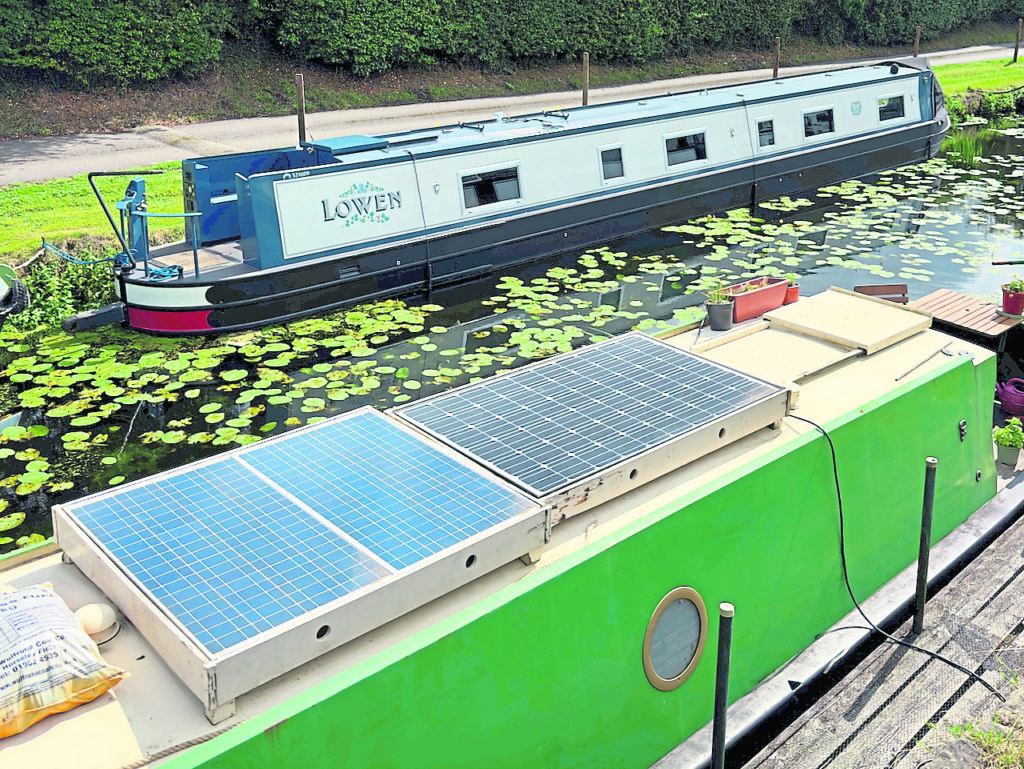Phil Pickin reports…
THERE are a number of obstacles to overcome if boat owners want to be more independent when it comes to generating their own electricity. The UK’s lack of sunshine is certainly a major problem, as is a lack of space on the roof of their boats, so to optimise the space available, efficient solar panels are the way to go.
The problem is, most of the solar panels currently available are only around 20-22% efficient, so to make any appreciable amount of electricity, you need a lot of panels – and when you have a limited amount of space, that can be an issue. So it was good to find out that, according to some new research published in Nature, monolithic perovskite/silicon tandem solar cells can achieve efficiency of up to 34%. This may not seem a lot, but when it comes to squeezing every last bit of energy out of every panel, a 14% increase is worth having.

According to reports, this increase in efficiency, if used in a domestic setting of a rooftop installation on a typical property in the UK, would see a 27% increase in savings on a typical electricity bill. With feed-in tariffs being so low now, the best way to make full use of any solar installation is to store the energy and use it yourself. If you did this using the next generation of panels, the savings could rise from more than £550 per year to more than £700.
As we know, the majority of the current range of solar panels is made from silicon. However, silicon’s efficiency is apparently limited to 29%. So, to overcome this limitation, scientists have stacked two materials on top of each other in an effort to capture more of the sun’s energy and convert it into electricity. This new sandwich uses silicon and perovskite materials, the latter of which is said to have only been discovered 20 years ago, the main benefit of which is its ability to capture light in the blue part of the visible spectrum.
Efficiencies
Body text: With energy prices being so high and climate change being such an important subject, the scientific community has been putting in a significant amount of effort to develop solar panels with higher efficiencies, and it seems that their efforts are paying off. But before you start beating a path to your local chandlery to buy these new panels, it’s worth mentioning that, as yet, this new technology is only at the development stage. A company called Oxford PV has announced the first sale of these new panels, but this is very much a ‘work in progress’ situation.

In addition to the technical challenges of developing these panels, there are also issues relating to the materials used to manufacture them. Perovskite solar cells are said to contain lead, carbon, iodine and bromine. Hardly environmentally friendly elements and their manufacture is, at the moment, highly energy intensive. But these are early days, and no doubt the scientific and engineering community will work hard to overcome these issues.
The primary markets for these new panels will be for domestic and commercial installations but they will undoubtedly become available to other markets as time goes by. For waterways users this could make all the difference as it could enable significantly more power to be generated from the panels on the roof. More power coupled with better storage may encourage more owners to opt for electric propulsion, as the combination could overcome the dreaded range anxiety. If nothing else, when the next generation of panels does make it to the market and on to the roof of a boat near you, it could mean that the use of supplementary generators will be reduced. Lower emissions and less noise must be good for all users of the waterways.
Until then, we will just have to put up with the less efficient but more affordable panels now on offer. But with current panels lasting 25-plus years and the current range of diesel engines lasting, in some cases, even longer, there is time for the new panels to enter the marketplace and, almost more importantly, come down in price.




